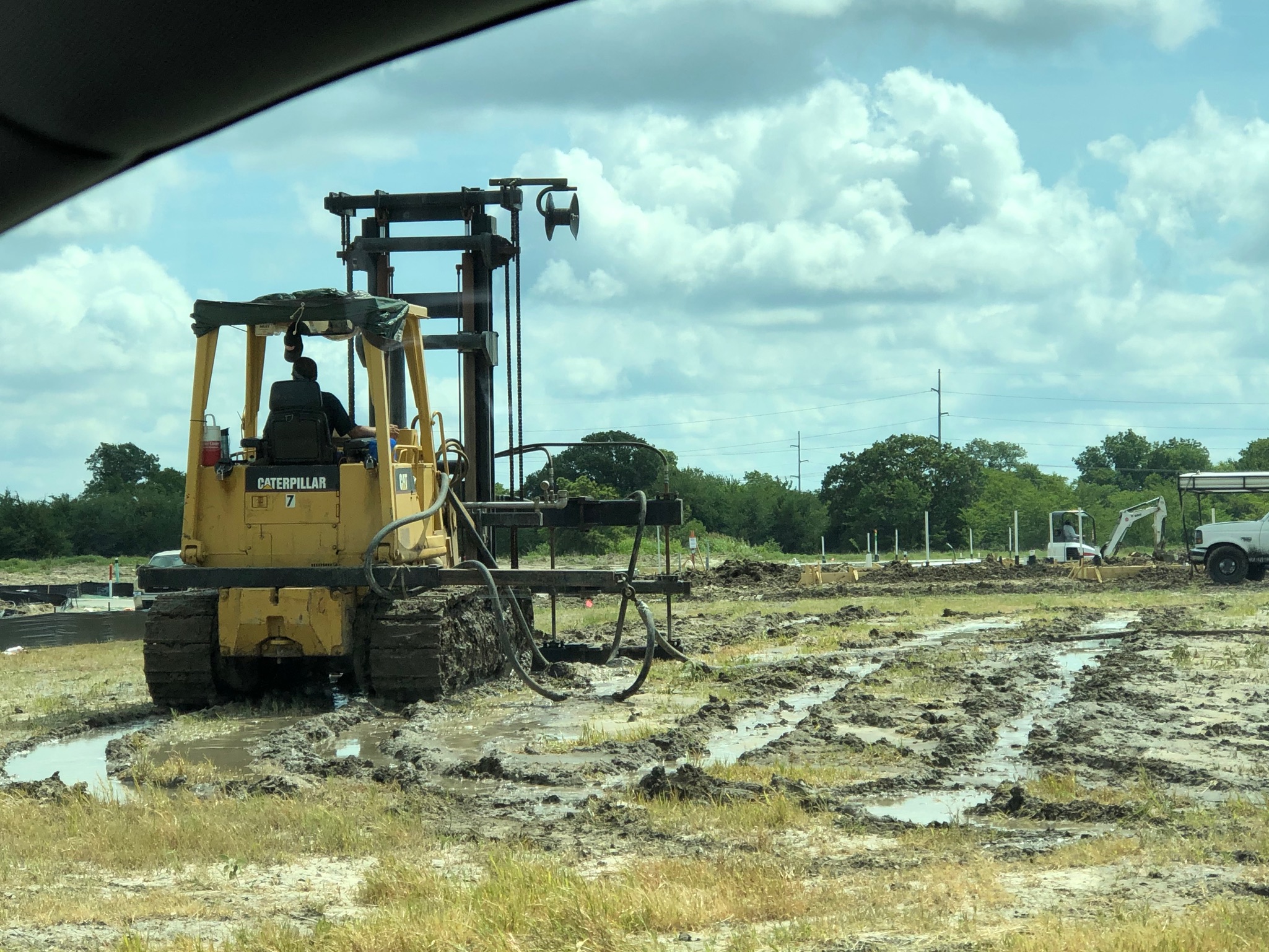Soil stabilization is vital for creating safe, durable foundations in construction. However, not all stabilization methods are the same. Traditional techniques like lime or cement mixing—often grouped under “chemical stabilization”—are fundamentally different from ProChemical Soil Stabilization’s innovative ionic soil treatment. Understanding these distinctions ensures you select the best solution for your project’s specific needs.
Injection Solution-Based Soil Stabilization (ProChemical Soil Stabilization’s Method)
At ProChemical Soil Stabilization, we deliver a next-generation process tailored specifically for new construction on problematic clay soils. Unlike conventional methods, our solution does not use lime, cement, or fly ash. Instead, it’s a highly targeted, two-step injection procedure designed for lasting soil stability:
Step 1: Water Injection Pass
We begin by injecting water into the clay layer. This brings the soil to its maximum swell point (PVR)—exposing the full extent of the clay’s natural potential for movement and preparing the soil structure for optimal treatment.
Step 2: Ionic Solution Injection
Once the clay is fully swollen, we inject our proprietary ionic solution. This solution adjusts the polarity of the clay particles, making them permanently resistant to water absorption. By neutralizing soil reactivity at a molecular level, the soil is locked in place—eliminating swelling and shrinking cycles for the long term.
For existing structures or foundation issues: We use a targeted hand-injection technique, combining water and ionic solution in a single pass, providing effective remediation without invasive construction.
Key advantages of our approach:
- Targets the root cause of soil movement: clay reactivity—not just surface symptoms
- Does not harden or cement the soil, but creates stable, non-reactive ground
- Results in efficient, permanent, and environmentally responsible stabilization
Traditional Chemical Soil Stabilization (Lime, Cement, Fly Ash)
“Chemical stabilization” typically refers to mixing agents like lime, cement, or fly ash into the soil. Here’s how these methods work:
- Lime stabilization: Adds lime to trigger chemical reactions with clay, increasing strength and somewhat reducing shrink/swell potential.
- Cement stabilization: Binds soil particles together, essentially turning the soil into a hardened, concrete-like mass.
- Fly ash stabilization: Functions mostly as a binder, especially when combined with lime or cement.
While these approaches improve compaction and support for construction, they do not neutralize the reactivity of clay soils—the underlying cause of many problems. They also require heavy equipment, create higher carbon emissions, and involve handling potentially hazardous materials.
Is Plain Water Injection Effective?
Injecting only water is sometimes used for short-term compaction or to settle loose, granular soils—not for clays. In clay soils, simply adding water can increase swelling and instability, making foundational problems worse over time. Plain water injection does not provide lasting stability or address reactive clays at all.
How to Choose the Right Soil Stabilization Solution
- For new construction on clay soils: Choose ProChemical’s ionic injection solution for targeted, permanent, non-cementitious stabilization.
- For existing structures or ongoing foundation movement: Ask about our specialized retrofit/hand-injection process.
- For short-term or minor density improvements on non-reactive soils: Water injection may suffice, but not for expansive clays.
Conclusion: Not All Soil Stabilization Is Alike
The term “chemical stabilization” too often refers to a variety of unrelated soil treatments. ProChemical’s ionic solution-based injection process is not lime or cement mixing. Our approach is uniquely designed to lock in clay soils by neutralizing their reactivity at the source, delivering a stable, long-term foundation for your project.
Ready for a smarter, longer-term solution to soil movement? Contact ProChemical Soil Stabilization today to discuss our unique ionic soil stabilization services. Let us help you choose the best method for your project to ensure stability and success. Contact us today to learn more about our comprehensive services.

